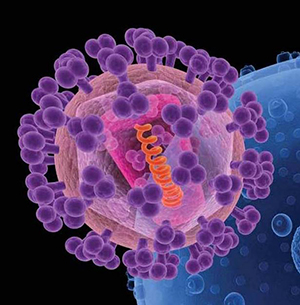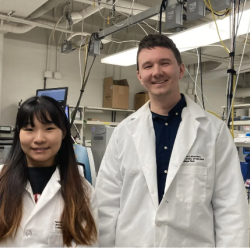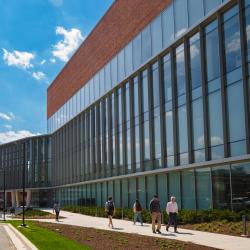New Molecule Shows Promise in HIV Vaccine Design
Vaccine candidate spurs animals to produce antibodies against protective sugars of multiple HIV strains.

Researchers at the University of Maryland and Duke University have designed a novel protein-sugar vaccine candidate that, in an animal model, stimulated an immune response against sugars that form a protective shield around HIV. The molecule could one day become part of a successful HIV vaccine.
“An obstacle to creating an effective HIV vaccine is the difficulty of getting the immune system to generate antibodies against the sugar shield of multiple HIV strains,” said Lai-Xi Wang, a professor of chemistry and biochemistry at UMD. “Our method addresses this problem by designing a vaccine component that mimics a protein-sugar part of this shield.”
To read more, visit https://cmns.umd.edu/news-events/features/4011






